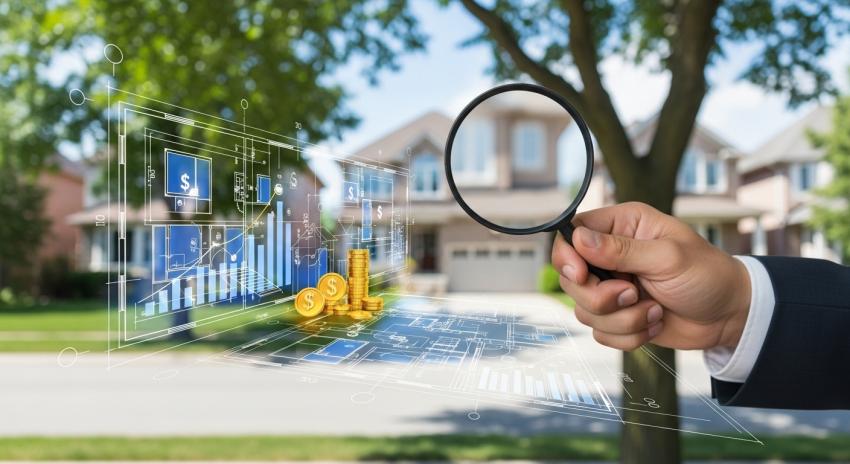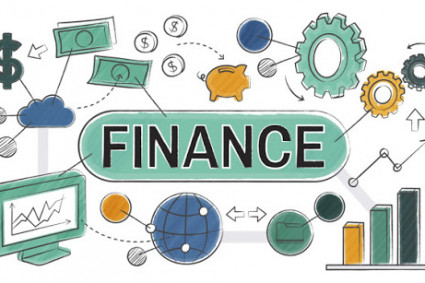
Introduction: Why You Can't Get a Straight Answer
Let's get one thing straight: if you're asking about the home appraisal cost in Ontario, the answer "it depends" is 100% correct, and 100% useless. You've got a budget to manage. You're trying to refinance, sell your home, or settle an estate, and you need a number.
The problem is that an appraisal isn't a product you buy off a shelf. It's a professional, insured service, just like a legal opinion or a building inspection. You're paying for a designated expert's time, their liability, and their specialized knowledge of your specific neighborhood.
As someone who deals with these reports weekly, I’m going to pull back the curtain. We'll break down the real 2025 price ranges, what makes that price go up, and the common, costly myths Ontario homeowners still believe.
The Real 2025 Price Tag: What's the Damage?
Okay, let's talk numbers. I've seen invoices from all over the province. While every firm sets its own fees, here is what you should actually budget for a standard appraisal for lending purposes as of late 2025.
Standard Urban/Suburban Home: $450 - $650
This covers most typical detached homes, semis, and townhouses in populated areas like Mississauga, Barrie, Hamilton, or Kanata. This is your baseline.
Downtown Toronto or Ottawa Core: $500 - $750+
Why more? Appraising a downtown condo is complex. The appraiser has to account for amenities, floor level, view, parking spot value (which can be $100k+!), and finding true "comps" in the same building. It's more work.
Rural or Acreage Properties: $800 - $1,500+
This is where homeowners get sticker shock. Don't. You're paying for the appraiser's travel time (that's 90+ minutes round trip), plus the complexity of valuing the land, the septic system, the well, and any outbuildings (barns, workshops). It's a different beast entirely.
Luxury or Highly Custom Homes: $1,000 - $3,000+
If your home is in Rosedale or on the Oakville waterfront with a home theatre and a negative-edge pool, you can't compare it to the house next door. This requires a specialized, narrative-style report that takes days, not hours.
So, why the big range? You're paying for the appraiser's time and liability. A $2 million dollar property carries more risk for the appraiser's insurance than a $600k starter home, and their fee reflects that.
Common Appraisal Myths That Cost You Money
As an expert, I hear the same misunderstandings all the time. Let's bust three myths right now.
MYTH 1: "My HouseSigma / Zillow estimate is just as good."
Truth: Absolutely not. Those are AVMs (Automated Valuation Models). They are algorithms that guess value based on sales data. They do not know that you have a brand-new $40,000 kitchen. They also do not know that your neighbour's house sold for $50k less because it had a leaky roof and original 1970s shag carpet. The appraiser sees the condition and quality, which is the most important part.
MYTH 2: "My $80,000 pool and $30,000 landscaping added $110,000 to my home's value."
Truth: I'm sorry, but no. Renovations rarely give you a 100% return on investment. A pool might only add $20,000 in value to a buyer, and some buyers might even see it as a liability. The best ROI always comes from kitchens and bathrooms. An appraiser knows the market value of an upgrade, not what you paid for it.
MYTH 3: "I need to deep clean and stage my house!"
Truth: Not really. An appraiser is a professional, not a potential buyer. They are trained to see past your clutter, your kids' toys, and your personal decor. They do care about "deferred maintenance"—peeling paint, broken steps, a visible water stain on the ceiling. Fix the problems, don't just hide the mess.
How to Vet Your Appraiser (And Their Digital Trust)
Your lender will likely provide a list of "approved" appraisers, but if you're hiring one directly (for estate, tax, or divorce purposes), you need to do your homework.
First, they must have a designation from the Appraisal Institute of Canada (AIC). Look for CRA (Canadian Residential Appraiser) or AACI (Accredited Appraiser Canadian Institute). This is non-negotiable.
But in 2025, that's just the start. You must also judge their professionalism.
The Digital Footprint Test: Honestly, look at their website. If it looks like it was built in 1999, is it secure (does it have the "lock" icon)? This is a red flag. In today's market, a professional who handles sensitive financial data must invest in a [professional web development] platform. It signals that they take security, client data, and their own brand seriously.
Ask About Their Process: When you call, ask them how they handle report delivery. Do they use a generic Hotmail account, or do they have a secure, encrypted client portal? You're sending and receiving documents with your entire financial life in them. Top-tier firms now use secure, [custom digital platforms] to manage client intake and protect you. A professional who invests in this infrastructure is showing you they are serious about protecting your data.
What Appraisers Actually Look For (The "Bones" of Your Home)
When the appraiser arrives (they'll only be there for 20-40 minutes), they aren't there to judge your taste in furniture. They are there to measure and document the "bones" of your house to compare it to other recent sales.
Here's their checklist:
The "Big Three": Age, overall condition, and total square footage (specifically "Gross Living Area," which is finished space above ground. Your finished basement is valued separately, but it's a huge value-add).
The "Numbers": Number of bedrooms and bathrooms. A 4-bed, 3-bath is fundamentally different from a 3-bed, 1-bath.
The "Big Ticket" Items: They will note the age and condition of the roof, windows, furnace (HVAC), and electrical panel. An old, failing roof is a major deduction.
The "ROI Items": Quality and age of the kitchen and bathrooms. Are they original? Are they builder-grade? Or are they recently and tastefully renovated?
The "Location Factors": Is the house on a busy main road (bad) or backing onto a ravine (good)? What's the "curb appeal" like?
They take all these notes, go back to their office, and spend the real time—hours—finding the 3-5 most recent, most similar "comps" (comparable sales) to justify your home's final value.
Conclusion: It's an Investment, Not a Fee
Stop thinking of the home appraisal cost in Ontario as a "fee." It's not. It's an investment in certainty.
That $500 report is the lynchpin that unlocks a $400,000 mortgage. It's the independent proof you need to settle a million-dollar estate. It's the data that lets you confidently pull $100,000 from your home for a critical renovation.
Don't just shop for the cheapest opinion. Shop for the most professional, thorough, and reputable one. In a market as valuable as Ontario's, that expert, unbiased number is worth every single penny.




